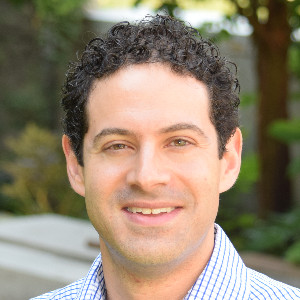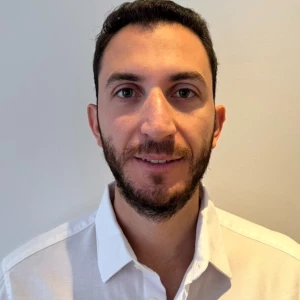I've heard it doesn't matter how long you take to structure as long as it's a well-defined structure. It can even take anywhere up to 5 minutes between writing it down and saying it out loud..is this ok? (I.e if I take 3 minutes to write down a structure + about 2 minutes to explain it..this would be a lot shorter for stereotypical business cases but I was thinking more about the vague / creative cases where you'd have multiple layers)
Time to structure vague/creative cases MBB


Hey there,
The 'creativity' or out-of-the-box level of the case has no impact on the timing to structure or communicate. It should still be done within the same time frame as any other business question.
There is only a difference between McKinsey and Bain/ BCG:
At the core, McKinsey wants to see creative ideas communicated in a structured manner, the more exhaustive the better.
Your goal should be to come up with a tailored and creative answer that fits the question. The framework should - broadly speaking - follow these three characteristics:
- Broad
- Deep
- Insightful
You would need to go into detail and qualify your answer with practical examples and more details.
To come up with the framework you have 1-2 minutes (2 minutes is kind of a soft limit). Then, in a McKinsey interview, you can take up to 5-8 minutes to present your structure, your qualification, and hypotheses. This is due to the interviewer-led format that McK employs. The interviewer will only ask 'what else' if you
- haven't gone broad or deep enough
- did not explain your ideas well enough for them to stand out (again, you have time here)
The firm wants to see exhaustive and creative approaches to specific problems, which more often than not do not fit into the classic case interview frameworks that were en vogue 10 years ago...
Again, this only applies if everything you say
- adds value to the problem analysis
- is MECE
- is well qualified
- includes a detailed discussion of your hypotheses at the end
Summing up the core differences to Bain and BCG:
- You have more time to think about it
- You have more time to lead the interviewer through your structure
- You need to go wide and deep to create an exhaustive and creative structure, whereas in BCG/Bain you rather need to be focused and quickly zero in on the key points where the problem of the case is most likely buried
- Questions tend to be more creative and not suitable for classic frameworks, especially on the lower levels of the framework
- Instead of drilling through your framework, in the end, to look for answers to solve the case, in a McKinsey-style, you need to discuss what part of your framework you would want to prioritize
The difference in format and way of answering a question is the reason why I recommend preparing very differently for McK interviews vs. other consultancies.
Let me know if you have more questions!
Cheers,
Florian

This is an important question so thanks for asking.
I find that in general, candidates think they have less time than they actualy do. Go slow. Get good. Then worry about speed.
Now for the details. On this, there are no rules, so I'll give you some guidelines based on my experience on both sides of the table.
- The interview simulates a client meeting. In a client meeting you would stop and think before answering a complicated question, so you should be stopping to think here as well.
- However, there's a limit to how long. Somewhere between 60-90 seconds is what *most* people consider *normal." Most would consider 3 minutes very long.
- It's always better to be correct than it is to be fast. If you do well and you're slow, that's obviously better than being fast but not being thorough. So, within reason, don't sacrifice quality for speed. If you need the three minutes, you have to take it, even thought that's "very long." As long as you give a good answer!
As for the second part of your question, how long to explain the structure. That totally depends on the complexity and the detail required, so it's harder to give guidelines there.
- Two minutes sounds fine.
- It will depend much more on how you and interviewer interact during the answer. If you make it a discussion instead of an explanation (which you should) it could take much longer than two minutes.
- I wouldn't measure the explanation in time, rather in content. Get the content right and learn to communicate it well and the clock will take care of itself for this one.
Sorry for the long answer! Hope this helps,
Allen

Hi there,
To write down the structure, 3 minutes is definitely too long. I would train with max 1.5 min as a benchmark. The interviewer may also interrupt and ask if you are ready and you may ask for a bit more time (say 30 sec more).
If you are short on time, you may have to write more concise notes. You can find some tips here:
https://www.preplounge.com/en/consulting-forum/case-prompt-recap-10597
To present, 2 minutes is totally fine.
Best,
Francesco

*sigh* This is one of these classic questions again which mirrors all the misguidance you get on the topic when browsing the internet... Let me just say this: if someone tells you that 2 or 3 minutes is "definitely too long" to structure a case question - then this is a surefire sign that this person has never been trained as an interviewer at either McKinsey or BCG (and I highly doubt that it is different for Bain).
However there is another problematic premise in your question: there are no "creative" cases at MBB! Every case question, be it a strategic decision, a diagnostic situation, or a brainstorming question, must be attacked by means of a RIGOROUS and REPEATABLE logic. So even "creative" exercises such as brainstorming need to be addressed in a very methodical way. If this is not the case, then an MBB interviewer can hardly give you the thumbs up - even if your ideas are super innovative or creative.
Cheers, Sidi

Hi there,
Let me put it this way - if you have 25 minutes to impress a date, are you going to spend 5 minutes writing out your "pitch" to them as to why you're a good life partner?
Jokes aside, 5 minutes overall is ok, but a little on the long side. 3 minutes to write down the structure is too long.
Why?
It's less about a hard number and more about an indication that you are not being objective-driven, MECE/Structured, and focusing only on the things that matter that help you answer the question. Why is this bad? It's an indication you will not be a fast/structured thinker when you're on a real-life project.
Practice wireframing! I.e., just have a "skeleton" of your framework. Get the structure down, and some quick shorthand "examples"/"ideas" within, but don't flesh out the entire thing. Fill it in verbally as you go through the structure, and leverage phrases like "for example" to rattle off a lot of ideas quickly without wasting time.

Its hard to provide a magic number for this "time" and a one size fits all approach. Its case by case, interviewer by interviewer. Having said this, 5 mins is long..regardless what type of case- traditional or creative as you say. 2-3 mins seems good! And I dont think you need to approach a creative case any diferently so any "extra time" is not a good way to think about this. A good case performance feels like a natural, relaxed dialogue and the periods of silence dont feel awkward. Interviews are trained to allow this thinking time, so its totally okay. But beware, sometime they might fire a shot and get into it straightway. So adapt as required and prepare for this during your practice sessions.
Please have a look at these threads for tons of tips on similar question:
- https://www.preplounge.com/en/consulting-forum/what-is-a-good-approach-to-cases-that-dont-fit-a-framework-9521
- https://www.preplounge.com/en/consulting-forum/not-given-time-to-come-up-with-a-structure-3317
- https://www.preplounge.com/en/consulting-forum/time-allowed-to-draft-initial-structure-scoring-by-interviewers-6185
- https://www.preplounge.com/en/consulting-forum/what-is-the-right-amount-of-time-to-ask-for-when-providing-your-initial-structure-8731

I would keep the writing down vs. sharing time separately. 3-5 mins for you to "gather your thoughts" and write things down is normal. Although I would always try to be top-down and err on the side of conciseness, I wouldn't be as restricted in time when sharing.















